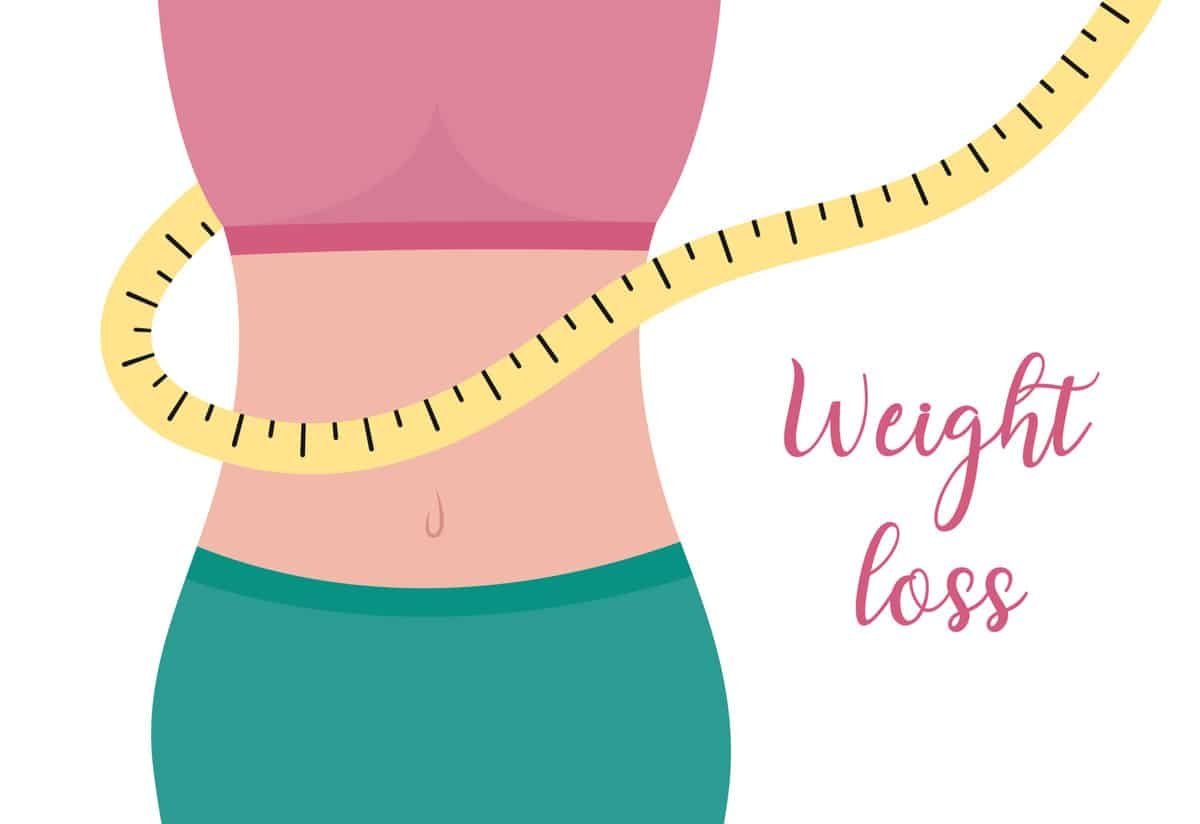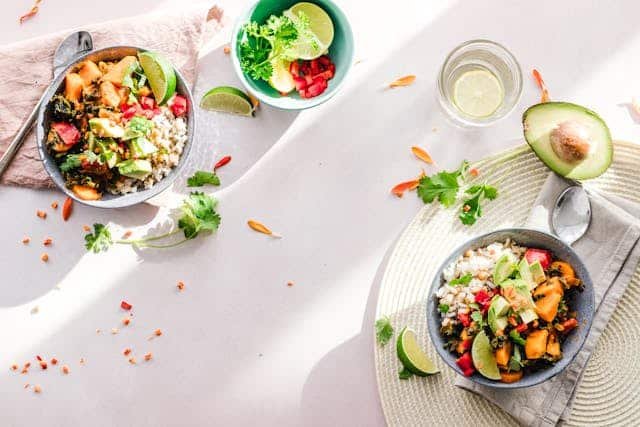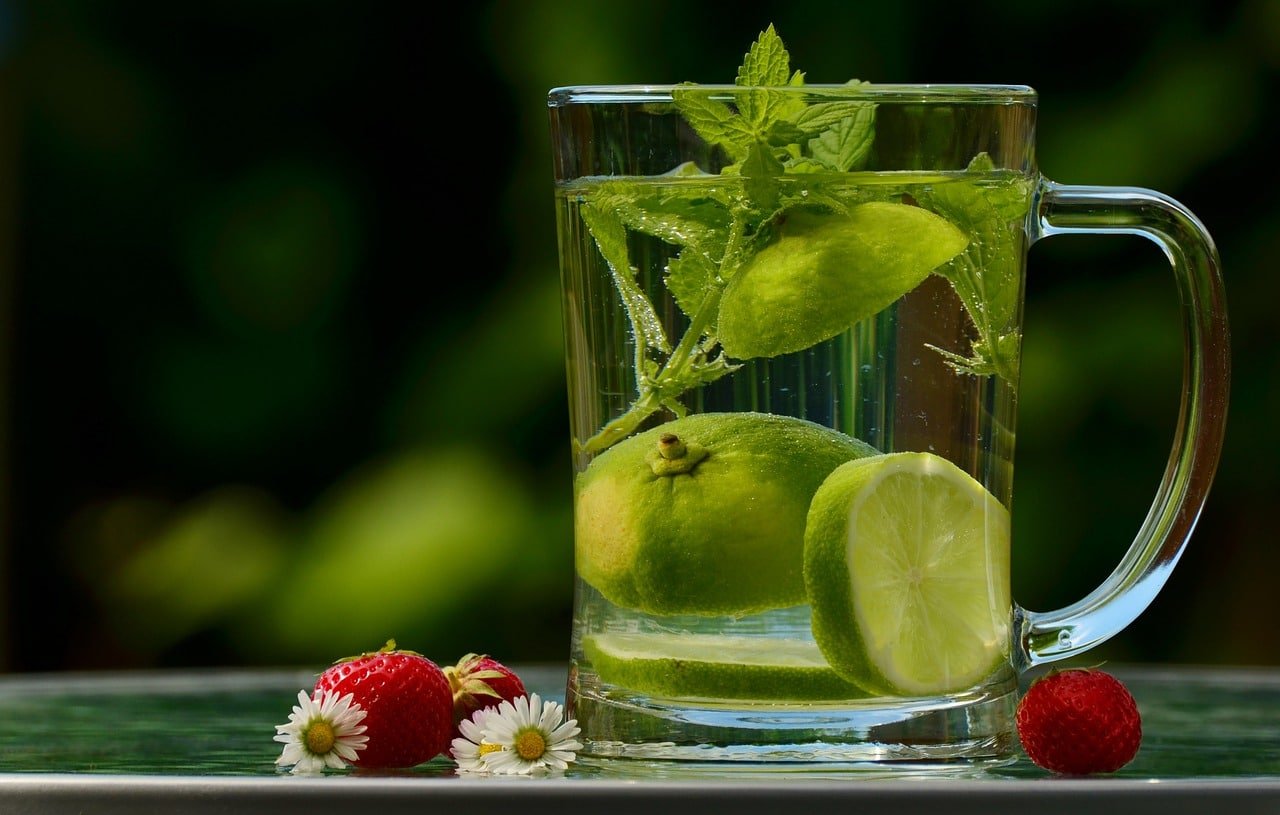Keeping a flat belly and a healthy body is totally doable with the right foods. Think leafy greens, lean proteins, whole grains, and healthy fats. Avocados, berries, nuts, and yogurt are all fantastic picks to help maintain a balanced diet and boost your overall Health. By choosing these nutritious options, you can stay in great shape and feel your best. Let’s Dive in How you can Keep Belly flat
In This Article
1. Leafy Greens
Leafy greens like spinach, kale, and collard greens are packed with essential vitamins, minerals, and fiber. They’re low in calories and water content, making them great for keeping your belly flat. Plus, they’re loaded with antioxidants that help fight inflammation and can reduce the risk of chronic diseases.
Spinach
Spinach is a fantastic superfood that’s low in calories but packed with nutrients. It’s loaded with iron, calcium, and vitamins A, C, and K. Plus, it has lutein and zeaxanthin for eye health. Spinach is also super versatile in the kitchen; you can enjoy it fresh in salads, blend it into smoothies, or cook it into dishes like soups, pasta, and omelets.
Kale
Kale is another leafy green powerhouse with only 33 calories per cup. It’s a great source of vitamin C, iron, and potassium. It also has powerful antioxidants that may help protect against certain types of cancer. You can use kale in various recipes, from raw salads to crispy chips, and even blend it into green juices for an extra nutrient boost.
Collard Greens
Collard greens might not get as much love as other leafy greens, but they’re just as nutritious. They’re packed with vitamins A, C, and K, folate, and calcium. Collard greens also have anti-inflammatory properties that can benefit your overall health. They’re a staple in Southern cuisine and can be simmered, sautéed, or even used as a low-carb wrap alternative to tortillas.
Swiss Chard
Swiss chard contains vitamins and minerals like iron, magnesium, and potassium. It’s also high in fiber, which keeps you full and promotes healthy digestion. With its vibrant stems and large, crinkly leaves, Swiss chard is not only nutritious but also beautiful. For a pop of color, you can add it to a variety of dishes, such as stir-fries, casseroles, or even salads.
2. Berries
Berries are some of the tastiest and most nutritious fruits around. They’re low in calories but high in fiber, which helps keep you full longer. Plus, they’re packed with powerful antioxidants that can protect against cell damage and may reduce the risk of chronic diseases.
Blueberries
Blueberries contain antioxidants, especially anthocyanins, which give them their deep blue color. These antioxidants can boost brain function and might even have anti-aging effects. Enjoy them as a snack, or add them to smoothies, yogurt, oatmeal, or pancakes for a burst of flavor and nutrition.
Strawberries
Strawberries are bursting with vitamin C, potassium, folate, and fiber. They’re also one of the lowest-calorie fruits you can eat. These sweet and juicy berries are perfect for satisfying your cravings without derailing your healthy eating goals. Eat them fresh or use them in desserts like strawberry shortcake or parfaits.
Raspberries
Raspberries contain antioxidants, vitamins, and minerals like vitamin C, manganese, and magnesium. They also contain ellagic acid, a compound that’s been linked to reduced inflammation and protection against chronic diseases. Toss them into smoothies, salads, and desserts, or enjoy them alone.
Blackberries
Blackberries are rich in fiber, vitamin C, and antioxidants like polyphenols. They also have anti-inflammatory properties that may improve overall health. Add them to baked goods or yogurt parfaits, or use them as a topping for oatmeal or chia pudding for a nutritious and delicious breakfast option.
2. Nuts and Seeds
Nuts and seeds make the perfect snack for keeping your belly flat. They’re packed with healthy fats, protein, and fiber, which help keep you full and satisfied between meals. They’re a convenient on-the-go option to curb cravings and prevent overeating. By adding a variety of nuts and seeds to your diet, you can enjoy numerous health benefits and tasty snacks all at once.
Almonds
Almonds are loaded with monounsaturated fats, which have been linked to reduced inflammation and better heart health. They are rich in vitamin E, magnesium, and potassium. Enjoy them as a crunchy topping for salads or yogurt bowls spread almond butter on toast, or carry a small bag of almonds for a quick and nutritious snack when you’re on the go.
Walnuts
Walnuts are another great source of heart-healthy monounsaturated fats. They also contain omega-3 fatty acids, which are great for brain function, reducing inflammation, and supporting cardiovascular health. Sprinkle them on top of oatmeal, add them to homemade granola, or chop them up for baked goods like muffins or bread.
Chia Seeds
Chia seeds may be tiny, but they’re packed with nutrition. They’re high in fiber, protein, and healthy fats, making them a great addition to any meal or snack. They also absorb liquid, helping you stay hydrated throughout the day. Add them to smoothies, overnight oats, or sprinkle them on top of avocado toast. Mixing chia pudding with your favorite milk for a delicious and nutritious dessert, you can even make chia pudding.
Pumpkin Seeds
Pumpkin seeds are rich in zinc, iron, and magnesium, all essential for immune function and bone health. They also contain healthy fats and protein to keep you full and satisfied. Enjoy them roasted as a snack, use them as a crunchy topping for salads or soups, or add them to trail mix or baked goods like bread. Adding a handful of pumpkin seeds to your diet can greatly impact your overall health.
4. Whole Grains
Whole grains are fantastic! They’re packed with fiber, vitamins, and minerals and have antioxidants that can help protect against chronic diseases. By choosing whole grains over refined ones, you’ll stay fuller longer and keep your blood sugar levels stable. Here are some delicious whole-grain options to consider:
Quinoa
Quinoa is a superstar because it’s a complete protein containing all essential amino acids. It’s also fiber-rich and contains vitamins and minerals like iron, magnesium, and potassium. You can enjoy it as a side dish, a salad base, or even as a substitute for rice in stir-fries or sushi bowls.
Brown Rice
Brown rice is a more nutritious option than white rice. It contains fiber, vitamins, and minerals like manganese and selenium. Use it as a base for grain bowls, or pair it with your favorite protein and veggies for a wholesome side dish.
Whole Wheat Pasta
Swap out regular pasta for whole wheat pasta to boost your meal’s nutrition. It has more fiber, protein, and nutrients like iron and magnesium. Pair it with your favorite sauce, or toss it into salads or soups for a heartier dish.
Oats
Oats are amazing for their high soluble fiber content, which helps lower cholesterol levels and keeps you feeling full. They’re also a good source of protein and packed with vitamins and minerals like iron, zinc, and manganese. Enjoy them as a warm bowl of oatmeal, or add them to baked goods like cookies or muffins for extra texture and nutrition.
These whole grain options are not only nutritious but also versatile and delicious. Try them and see how they can fit into your daily meals!
5. Lean Proteins
Protein is essential for tissue repair and growth, preserving muscle mass, and promoting satiety. However, not all protein sources are the same. Opting for lean proteins over fatty ones can help keep your belly flat and offer other health perks.
Chicken Breast
Chicken breast is a lean protein that’s low in calories but packed with nutrients like vitamin B6, niacin, and selenium. Plus, it’s super versatile—you can toss it in salads, stir-fries, or grill it with veggies for a wholesome meal.
Fish
Fish is a fantastic source of lean protein, healthy fats like omega-3s, and essential nutrients like vitamin D and selenium. It’s also low in calories, making it great for weight management. Try to eat fish at least twice a week to enjoy its many health benefits.
Tofu
Tofu is a lean vegetarian protein rich in nutrients like calcium, iron, and magnesium. It’s really adaptable and can be used in all sorts of dishes as a meat substitute or even added to smoothies for an extra protein boost.
Eggs
Eggs are an affordable, nutritious protein source that fits easily into your meals. They’re high in quality protein, contain healthy fats, and are a good source of vitamins like vitamin D and B12. Enjoy them boiled, scrambled, or in omelets for a quick and satisfying meal.
Incorporating lean proteins into your diet can help manage weight and offer numerous health benefits. Whether you go for chicken breast, fish, tofu, or eggs, these options can help keep your belly flat and your body nourished.
6. Yogurt
Yogurt is an awesome source of probiotics, those beneficial bacteria that help support gut health and boost your immune system. Plus, it’s packed with protein, calcium, and potassium. For the best benefits, go for plain or Greek yogurt and toss in some fresh fruits or nuts for extra flavor and nutrition.
Kefir
Kefir is a fermented milk beverage that contains more probiotics than yogurt. It also contains nutrients like calcium, B vitamins, and magnesium. You can drink it straight or use it as a base for smoothies or salad dressings.
Kimchi
Kimchi is a classic Korean food crafted from fermented cabbage and assorted vegetables.It’s brimming with probiotics and vitamins, low in calories, and high in fiber. Enjoy it as a side dish, or mix it into stir-fries, soups, or sandwiches for an extra kick of flavor and nutrition.
Sauerkraut
Sauerkraut is another tasty fermented veggie dish, rich in probiotics and packed with nutrients like vitamin C and iron. It’s low in calories but adds a tangy twist to any meal. Try it as a topping for hot dogs or sandwiches, or enjoy it as a side dish.
Adding probiotic-rich foods like yogurt, kefir, kimchi, and sauerkraut to your diet can work wonders for your gut health and immune system. Give them a try and see how they can bring both flavor and nutrition to your meals!
7. Avocados
Avocados aren’t just delicious; they’re super nutritious too! Packed with heart-healthy monounsaturated fats, they help lower bad cholesterol and reduce the risk of heart disease. Plus, they’re full of fiber for better digestion and a happy gut. You also get essential vitamins like B6 for brain health, vitamin C for a stronger immune system and glowing skin, and vitamin E to protect your cells. Enjoy avocados mashed on toast, tossed in salads for a creamy touch, or blended into smoothies for extra richness and nutrition.
8. Green Tea
Green tea is a fantastic drink for your overall well-being. Packed with antioxidants, it helps fight cell damage and reduces the risk of chronic diseases like cancer and heart disease. It has caffeine for a natural energy boost and L-theanine, an amino acid that promotes relaxation and focus. Green tea offers many health perks, whether you like it hot or cold, plain or flavored.
Antioxidant properties
Green tea is loaded with polyphenols, especially catechins, which act as powerful antioxidants protecting your cells from damage caused by free radicals. This can help prevent various diseases and promote overall health.
Weight management
With its caffeine and EGCG (epigallocatechin gallate), green tea can boost your metabolism and increase fat burning, making it a great choice for weight management. Plus, its low-calorie content makes it a perfect alternative to sugary drinks.
Improved brain function
Green tea contains L-theanine, an amino acid that increases the activity of the neurotransmitter GABA, known for its calming effects on the brain. This can help you relax, reduce stress and anxiety, and improve your focus and alertness.
Heart health
The antioxidants in green tea have been linked to a reduced risk of heart disease by improving blood flow, lowering bad cholesterol levels, and preventing blood clots.
Adding green tea to your daily routine can bring many health benefits. Whether you enjoy it hot or cold, plain or flavored, this beverage can genuinely boost your body inside and out. So why not try some new recipes incorporating green tea for a refreshing and nutritious twist?
Green tea offers many health perks, whether you like it hot or cold, plain or flavored
9. Legumes
Legumes, like beans, lentils, and peas, are incredible plant-based protein sources. They’re low in fat but packed with nutrients like fiber, iron, folate, potassium, and magnesium. Plus, they’re budget-friendly and can easily be added to various dishes for extra flavor and nutrition.
Black Beans
Black beans are fantastic for plant-based protein since they contain all nine essential amino acids our bodies need. They also offer dietary fiber, which supports better digestion and helps regulate blood sugar levels.
Chickpeas
Chickpeas are another protein-rich legume full of essential nutrients. They’re high in fiber, making you feel full and satisfied longer. Enjoy them roasted as a crunchy snack or tossed into salads for extra texture and flavor.
Lentils
Lentils are super versatile and can be used in anything from soups to salads to veggie burgers. These small legumes deliver a powerful punch of protein, dietary fiber, iron, and folate. They’re also low in calories and fat but will keep you energized and satisfied for hours.
Adding legumes to your diet is excellent for your health, easy on the wallet, and delicious. Whether you choose black beans, chickpeas, lentils, or other types, there are countless ways to enjoy their nutty flavor and nutritional benefits. So, why not give them a try in your next meal? Regardless of where you are in life, making small changes to include these healthy foods can significantly benefit your overall well-being. From boosting your immune system to supporting gut health and aiding in weight management, these superfoods offer a range of health benefits. So go ahead and start adding them to your daily routine!
Here’s a table summarizing the key points from the document on foods that keep your belly flat and body healthy:
| Food Category | Key Points |
| Leafy Greens | – Low in calories, high in fiber, vitamins, minerals, and antioxidants– Examples: spinach, kale, collard greens, Swiss chard |
| Berries | – Low in calories, high in fiber and antioxidants– Examples: blueberries, strawberries, raspberries, blackberries |
| Nuts and Seeds | – Rich in healthy fats, protein, and fiber for satiety– Examples: almonds, walnuts, chia seeds, pumpkin seeds |
| Whole Grains | – High in fiber, vitamins, minerals, and antioxidants– Examples: quinoa, brown rice, whole wheat pasta, oats |
| Lean Proteins | – Low in fat, high in protein for muscle maintenance and satiety– Examples: chicken breast, fish, tofu, eggs |
| Yogurt and Fermented Foods | – Rich in probiotics for gut health and immunity– Examples: yogurt, kefir, kimchi, sauerkraut |
| Avocados | – High in healthy monounsaturated fats, fiber, and vitamins |
| Green Tea | – Packed with antioxidants, aids weight management, improves brain function, and supports heart health |
| Legumes | – High in plant-based protein, fiber, iron, folate, potassium, and magnesium– Examples: black beans, chickpeas, lentils |
The document emphasizes incorporating a variety of nutrient-dense and flavorful superfoods into your diet to support overall health, promote satiety, and maintain a flat belly. These foods offer a range of benefits, including boosting the immune system, supporting gut health, and aiding in weight management.
Conclusion
In conclusion, adding a variety of nutrient-dense and flavorful superfoods to your diet can bring many health benefits. From boosting your immune system to supporting gut health and helping with weight management, these foods offer a wealth of nutrition. Why not start incorporating them into your meals today? Maybe add some probiotic-rich foods like yogurt and sauerkraut for better digestion, or enjoy avocados and green tea for heart health. There are so many possibilities to explore. You can make a big difference in your overall well-being with just a few small changes to your eating habits.

Clara
Dr. Clara is a dedicated physician and fitness expert specializing in preventative medicine and lifestyle management. With a medical degree from University of California San Francisco and certifications in personal training and nutrition, she provides holistic, personalized care. Dr. Clara is passionate about empowering individuals to achieve their health and fitness goals through balanced, sustainable practices.







